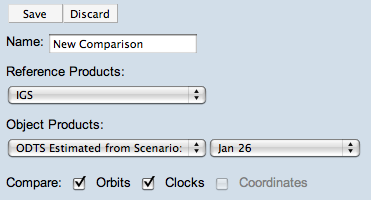Batch upload
February 25th, 2009 by Ricardo PírizWe have explained how to upload and process your own station data in magicGNSS (in a previous entry). If you need to download many daily RINEX files from the IGS server and upload them in your magicGNSS account by ftp (for *pro* users only), here are a couple of very simple UNIX scripts that might help you. They are based on the ncftpget and ncftpput tools. The download script is called in this way:
./download yy ddd stations.txt (example: ./download 09 040 mystations.txt)
where stations.txt is a simple file whose rows contain the station names (here is an example of stations.txt file). The daily RINEX files are downloaded onto the current local directory.
The upload script is called like this:
./upload yy ddd stations.txt magicuser.cfg (example: ./upload 09 040 mystations.txt johnsmith.cfg)
where magicuser.cfg is a file that contains your magicGNSS account information (here is an example of magicuser.cfg file). The daily RINEX files are uploaded and then deleted from the current local directory.




